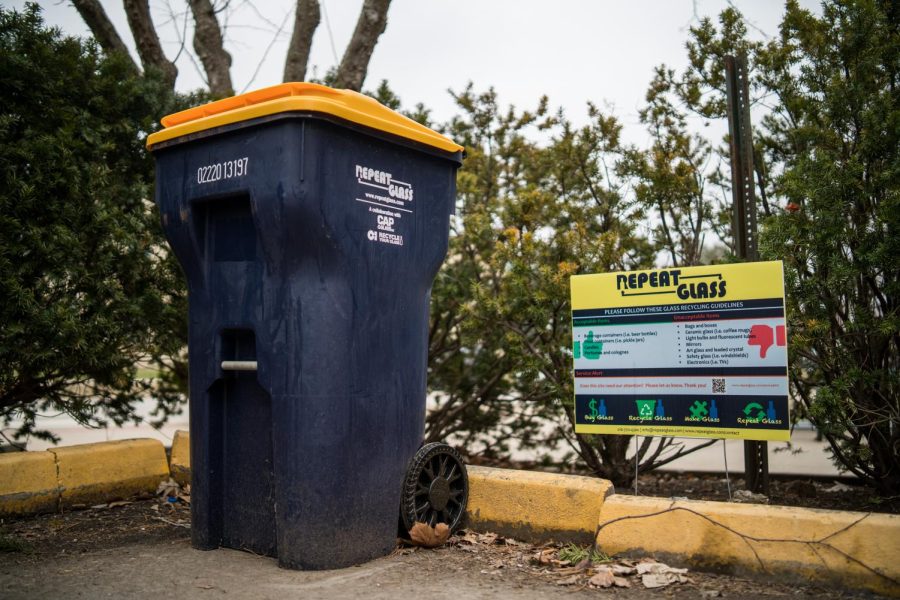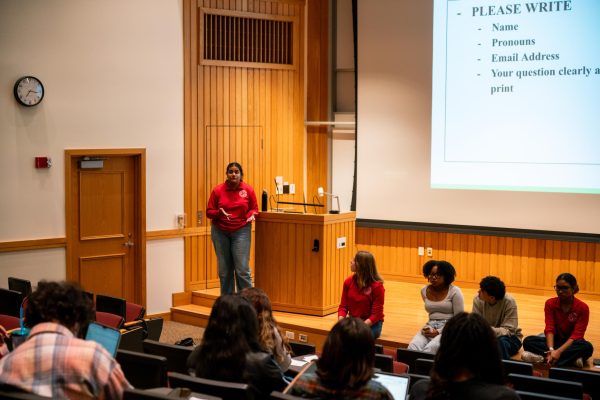College Introduces Glass Recycling
Repeat Glass bins are now located on campus.
Last Friday, two glass recycling bins were installed on campus behind Harkness House and in the Wilder Hall parking lot. This was part of an initiative by the Resource Conservation Team, a division of the Office of Environmental Sustainability. The program is in collaboration with Cleveland-based glass recycling company Repeat Glass.
According to Campus Energy and Resource Senior Manager Joel Baetens, the choice to partner with Repeat Glass stemmed from the lack of a glass recycling service offered by the local recycling plant.
“We are not able to recycle glass through our standard commercial recycling agreements,” Baetens wrote in an email to the Review. “There simply is not a market for it right now and it would end up in the landfill.”
Repeat Glass works within Northeast Ohio communities to provide an effective and sustainable option for glass recycling. According to the Repeat Glass website, recycling in Ohio is often highly contaminated and sent to landfills without proper processing.
“The majority of glass recycling in Northeast Ohio is commingled,” the website states about addressing the problem with recycling in Ohio, “which means it is mixed with other recyclables (i.e. paper, aluminum, plastics).”
According to College fourth year and RCT Student Intern Mads Olsen, the locations of the bins on campus were determined based on centrality and convenience, as well as the large amounts of glass waste generated by the Dionysus Disco in Wilder Hall.
“The ’Sco generates a lot of glass and having a bin readily accessible to them will help us collect a lot of glass that would otherwise be thrown out,” Olsen wrote.
College fourth-year and RCT Student Intern Mia Véissid explained why the RCT, when deciding who to work with on recycling, could not rely on local glass recycling services.
“[The] local recycling plant does not actually recycle glass, but instead crushes it up and uses it as road base for the landfill (so arguably it is just going into the landfill),” Véissid wrote in an email to the Review.
Repeat Glass, however, provides the crushed glass to manufacturers of products such as insulation and recycled glass bottles. Beyond the company’s process, Véissid also noted that Repeat Glass was chosen in part for its flexibility, especially given that the recycling program is in a pilot phase.
“Repeat Glass … is flexible with how many bins we have on campus and how often they pick up the glass,” Véissid wrote. “They seemed like a great fit since we are not sure how this pilot program will go.”
The RCT’s introduction of glass recycling on campus is part of a broader push from the RCT towards conservation and sustainability on Oberlin’s campus. The College recently reintroduced composting on campus after a COVID related hiatus and is currently undertaking the Sustainable Infrastructure Project, a multiyear initiative to update building heating and cooling systems.
“The RCT is hoping that introducing glass recycling will further divert waste from the waste stream, something we are focused on not only in this program but also in the Free Store, in our food rescue program, and in our efforts to expand compost on campus,” Véissid wrote.






